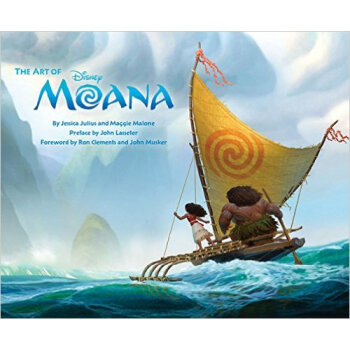![Robinson Crusoe鲁滨逊漂流记 英文原版 [平装] [NA--NA]](https://pic.windowsfront.com/19017077/rBEhU1I4MnAIAAAAAAEO7TV7a34AADQdQOaSDAAAQ8F088.jpg)

具体描述
编辑推荐
适读人群 :NA--NAGrade 7 Up-Defoe's classic novel of shipwreck and survival, now nearly 300 years old, is abridged competently in this recording. The flavor of the 18th century language is retained, but the plot moves along at a pace more appealing to 21st century ears. The reader, Martin Shaw, has a pleasant voice, but unfortunately tends to trail off at the ends of sentences, losing whole words. As with all abridgements, large sections of the story and entire characters are omitted, but since most of the book tells of Crusoe's solitary sojourn on the island, this is not a major problem. This version is no substitute for the original, but it would be a supplemental purchase in libraries where abridgements are popular.
内容简介
This classic story of a shipwrecked mariner on a deserted island is perhaps the greatest adventure in all of English literature. Fleeing from pirates, Robinson Crusoe is swept ashore in a storm possessing only a knife, a box of tobacco, a pipe-and the will to survive. His is the saga of a man alone: a man who overcomes self-pity and despair to reconstruct his life; who painstakingly teaches himself how to fashion a pot, bake bread, build a canoe; and who, after twenty-four agonizing years of solitude, discovers a human footprint in the sand... Consistently popular since its first publication in 1719, Daniel Defoe's story of human endurance in an exotic, faraway land exerts a timeless appeal. The first important English novel, Robinson Crusoe has taken its rightful place among the great myths of Western civilization.作者简介
Daniel Defoe was born Daniel Foe in London in 1660. It was perhaps, ineveitable that Defoe, an outspoken man, would become a political journalist. As a Puritan he believed God had given him a mission to print the truth, that is, to proselytize on religion and politics, and in fact, he became a prolific pamphleteer satirizing the hypocrisies of both Church and State. Defoe admired William III, and his poem The True-Born Englishman (1701) won him the King's friendship. But an ill-timed satire on High Church extremists, The Shortest Way with the Dissenters, published during Queen Anne's reign, resulted in his being pilloried and imprisoned for seditious libel in 1703.At fifty-nine Defoe turned to fiction, completing The Life and Strange Surprising Adventures of Robinson Crusoe (1719), partly based on the saga of Alexander Selkirk, a Scottish sailor; Moll Flanders (1722); Colonel Jack (1722); A Journal of the Plague Years (1722); and Roxana or the Fortunate Mistress (1724).
精彩书摘
I was born in the Year 1632, in the City of York, of a good Family, tho not of that Country, my Father being a Foreigner of Bremen, who settled first at Hull: He got a good Estate by Merchandise, and leaving off his Trade, lived afterward at York, from whence he had married my Mother, whose Relations were named Robinson, a very good Family in that Country, and from whom I was called Robinson Kreutznaer; but by the usual Corruption of Words in England, we are now called, nay we call our selves, and write our Name Crusoe, and so my Companions always call'd me.I had two elder Brothers, one of which was Lieutenant Collonel to an English Regiment of Foot in Flanders, formerly commanded by the famous Coll. Lockhart, and was killed at the Battle near Dunkirk against the Spaniards: What became of my second Brother I never knew any more than my Father or Mother did know what was become of me.
Being the third Son of the Family, and not bred to any Trade, my Head began to be fill'd very early with rambling Thoughts: My Father, who was very ancient, had given me a competent Share of Learning, as far as House-Education, and a Country Free-School generally goes, and design'd me for the Law; but I would be satisfied with nothing but going to Sea, and my Inclination to this led me so strongly against the Will, nay the Commands of my Father, and against all the Entreaties and Perswasions of my Mother and other Friends, that there seem'd to be something fatal in that Propension of Nature tending directly to the Life of Misery which was to be-fal me.
My Father, a wise and grave Man, gave me serious and excellent Counsel against what he foresaw was my Design. He call'd me one Morning into his Chamber, where he was confined by the Gout, and expostulated very warmly with me upon this Subject: He ask'd me what Reasons more than a meer wandring Inclination I had for leaving my Father's House and my native Country, where I might be well introduced, and had a Prospect of raising my Fortunes by Application and Industry, with a Life of Ease and Pleasure. He told me it was for Men of desperate Fortunes on one Hand, or of aspiring, superior Fortunes on the other, who went abroad upon Adventures, to rise by Enterprize, and make themselves famous in Undertakings of a Nature out of the common Road; that these things were all either too far above me, or too far below me; that mine was the middle State, or what might be called the upper Station of Low Life, which he had found by long Experience was the best State in the World, the most suited to human Happiness, not exposed to the Miseries and Hardships, the Labour and Sufferings of the mechanick Part of Mankind, and not embarass'd with the Pride, Luxury, Ambition and Envy of the upper Part of Mankind. He told me, I might judge of the Happiness of this State, by this one thing, viz. That this was the State of Life which all other People envied, that Kings have frequently lamented the miserable Consequences of being born to great things, and wish'd they had been placed in the Middle of the two Extremes, between the Mean and the Great; that the wise Man gave his Testimony to this as the just Standard of true Felicity, when he prayed to have neither Poverty or Riches.
He bid me observe it, and I should always find, that the Calamities of Life were shared among the upper and lower Part of Mankind; but that the middle Station had the fewest Disasters, and was not expos'd to so many Vicissitudes as the higher or lower Part of Mankind; nay, they were not subjected to so many Distempers and Uneasinesses either of Body or Mind, as those were who, by vi-cious Living, Luxury and Extravagancies on one Hand, or by hard Labour, Want of Necessaries, and mean or insufficient Diet on the other Hand, bring Distempers upon themselves by the natural Consequences of their Way of Living; That the middle Station of Life was calculated for all kind of Vertues and all kinds of Enjoyments; that Peace and Plenty were the Hand-maids of a middle Fortune; that Temperance, Moderation, Quietness, Health, Society, all agreeable Diversions, and all desirable Pleasures, were the Blessings attending the middle Station of Life; that this Way Men went silently and smoothly thro' the World, and comfortably out of it, not embarass'd with the Labours of the Hands or of the Head, not sold to the Life of Slavery for daily Bread, or harrast with perplex'd Circumstances, which rob the Soul of Peace, and the Body of Rest; not enrag'd with the Passion of Envy, or secret burning Lust of Ambition for great things; but in easy Circumstances sliding gently thro the World, and sensibly tasting the Sweets of living, without the bitter, feeling that they are happy, and learning by every Day's Experience to know it more sensibly.
After this, he press'd me earnestly, and in the most affectionate manner, not to play the young Man, not to precipitate my self into Miseries which Nature and the Station of Life I was born in, seem'd to have provided against; that I was under no Necessity of seeking my Bread; that he would do well for me, and endeavour to enter me fairly into the Station of Life which he had been just recommending to me; and that if I was not very easy and happy in the World, it must be my meer Fate or Fault that must hinder it, and that he should have nothing to answer for, having thus discharg'd his Duty in warning me against Measures which he knew would be to my Hurt: In a word, that as he would do very kind things for me if I would stay and settle at Home as he directed, so he would not have so much Hand in my Misfortunes, as to give me any Encouragement to go away: And to close all, he told me I had my elder Brother for an Example, to whom he had used the same earnest Perswasions to keep him from going into the Low Country Wars, but could not prevail, his young Desires prompting him to run into the Army where he was kill'd; and tho' he said he would not cease to pray for me, yet he would venture to say to me, that if I did take this foolish Step, God would not bless me, and I would have Leisure hereafter to reflect upon having neglected his Counsel when there might be none to assist in my Recovery.
I observed in this last Part of his Discourse, which was truly Prophetick, tho' I suppose my Father did not know it to be so himself; I say, I observed the Tears run down his Face very plentifully, and especially when he spoke of my Brother who was kill'd; and that when he spoke of my having Leisure to repent, and none to assist me, he was so mov'd, that he broke off the Discourse, and told me, his Heart was so full he could say no more to me.
I was sincerely affected with this Discourse, as indeed who could be otherwise; and I resolv'd not to think of going abroad any more, but to settle at home according to my Father's Desire. But alas! a few Days wore it all off; and in short, to prevent any of my Father's farther Importunities, in a few Weeks after, I resolv'd to run quite away from him. However, I did not act so hastily neither as my first Heat of Resolution prompted, but I took my Mother, at a time when I thought her a little pleasanter than ordinary, and told her, that my Thoughts were so entirely bent upon seeing the World, that I should never settle to any thing with Resolution enough to go through with it, and my Father had better give me his Consent than force me to go without it; that I was now Eighteen Years old, which was too late to go Apprentice to a Trade, or Clerk to an Attorney; that I was sure if I did, I should never serve out my time, and I should certainly run away from my Master before my Time was out, and go to Sea; and if she would speak to my Father to let me go but one Voyage abroad, if I came home again and did not like it, I would go no more, and I would promise by a double Diligence to recover that Time I had lost.
用户评价
对于《鲁滨逊漂流记》这个书名,早已如雷贯耳,但一直未能真正深入阅读。这次选择了英文原版平装本,一方面是想挑战一下自己的阅读能力,另一方面也是相信原著的魅力无法被完全替代。我设想,这本书不仅仅是一个简单的冒险故事,更是一次对人类生存极限的探索,以及对个体精神力量的深刻描绘。我很好奇,在那个完全脱离社会文明的环境下,一个人将如何重新建立自己的生活秩序,如何在这种极致的孤独中找到存在的意义。我期待书中关于鲁滨逊如何运用智慧和经验,去适应荒岛环境的描写,比如他如何从零开始,利用一切可用的资源,搭建庇护所,寻找食物,甚至驯养动物。这种从无到有的创造过程,一定充满了艰辛,但也彰显了人类惊人的适应力和创造力。我希望通过这本书,能够引发我对于生命、自由以及人类与自然关系的更深层次的思考,并从中获得一些关于如何在生活中保持积极心态的启示。
评分一直以来,对于“漂流”和“荒岛求生”的题材总是有一种莫名的偏爱,仿佛能从中看到人类最原始的生命力。这次选择《鲁滨逊漂流记》的英文原版,纯粹是出于对经典本身的敬畏,以及想要体验最纯粹的文字魅力。平装本的包装也让我觉得很贴近生活,不那么高高在上,仿佛随时可以拿起,开始一段旅程。我没有去深入了解这本书的具体情节,而是带着一种探索的心态去阅读。我预设,故事的主人公一定经历了一段极其艰难的时期,从最初的绝望、恐慌,到逐渐学会适应、创造,再到最终的找到内心的平静与力量。我特别好奇的是,作者是如何刻画这种心路历程的,这种从被动承受到主动改变的过程,一定充满了智慧和毅力。我想看到一个真实的人,如何在极端环境下,一点一滴地建立起自己的生存体系,这种过程本身就是一种对人类潜能的伟大证明。希望这本书能带给我一种身临其境的感受,让我仿佛也置身于那片孤寂的岛屿,去感受那份坚韧不拔的精神。
评分终于等到这本书寄到了!迫不及待地翻开,触感很不错,平装的质感也刚刚好,不会太重,方便携带。虽然是英文原版,但很多时候,原汁原味的语言更能传递作者当时的情感和语境,我一直相信,翻译多少会损失一些东西。鲁滨逊漂流记,这个名字在我脑海里已经久远,但具体的情节一直有些模糊,只知道是个关于一个人在荒岛上生存的故事。这次决定入手原版,也是想亲身体验一下那种纯粹的叙事。我比较期待的是作者如何去描绘鲁滨逊的内心世界,尤其是他在漫长的孤独中如何保持理智和希望。一个人面对茫茫大海和未知岛屿,那种无助感和求生欲的碰撞,一定会非常震撼。我也会特别关注书中对荒岛环境的描写,比如动植物、地形地貌等等,这些细节会让故事更加真实可信。总的来说,这是一次期待已久的探索,希望这本书能带给我惊喜,让我重新认识这个经典的冒险故事,并从中获得一些关于人生和生存的思考。
评分这是一本我早就想收入囊中的经典之作,这次选择英文原版,主要是想感受原汁原味的故事韵味,并希望通过阅读,能更深入地理解作者所要表达的那些关于人类精神和生存的哲学思考。平装本的设计,也更符合我日常阅读的习惯,轻松便携,随时随地都能进入那个充满冒险的世界。虽然对《鲁滨逊漂流记》的故事梗概有所了解,但具体到每一个细节,尤其是主人公在荒岛上如何一步步克服困难,如何与孤独为伴,如何保持对生活的希望,这些都让我充满了好奇。我期待着作者细腻的笔触,能够生动地描绘出鲁滨逊在野外生存的每一个场景,从寻找食物、搭建住所,到与自然搏斗,再到最终的自我救赎,每一个环节都可能蕴含着深刻的人生哲理。我希望在阅读的过程中,能够获得一次心灵的洗礼,能够从鲁滨逊身上汲取到面对逆境的勇气和智慧,并重新审视自己的人生观和价值观。
评分一本经典的冒险故事,总觉得应该找个时间好好读一读。这个版本,看标题就知道是英文原版,而且是平装本,价格应该会比较亲民。我一直对那些描绘人类如何在极端环境下生存的叙事非常着迷,想象着一个人如何从一无所有到创造属于自己的世界,这种韧性和智慧总是能给人带来深刻的启示。鲁滨逊漂流记之所以能流传至今,想必它在描绘这些方面有着独特的魅力。我很好奇作者是如何一步步构建鲁滨逊在荒岛上的生活的,从最初的绝望到后来的适应,再到最后的“征服”自然,这个过程一定充满了挑战和思考。我猜想,在阅读的过程中,我会被带入那个孤寂却又充满生命力的世界,去感受他内心的挣扎、恐惧、希望以及最终的坚韧。同时,我也想看看,在那个没有现代文明的时代,人类的本能和创造力能发挥出怎样的能量。购买这本书,更多的是一种对经典致敬,也是对自我精神的一次探索,期待它能带给我一次沉浸式的阅读体验,让我从中汲取力量和智慧。
评分看着还好,方便携带
评分物流非常的快,书也很轻,特别适合旅行使用,行间距还行,很好的一本书。
评分书还不错,字有点小,纸张尺寸小。
评分给孩子买的,字太密集,孩子不喜欢,不过相信名著迟早会走进孩子的视野。
评分十分满意啊 速度也是可以
评分刚刚出了这个故事的动画片
评分刚刚出了这个故事的动画片
评分挺不错的,618活动用神卷买的,超级实惠!!!
评分自己买来慢慢读,有活动很给力,以后希望多搞读书活动
相关图书
本站所有内容均为互联网搜索引擎提供的公开搜索信息,本站不存储任何数据与内容,任何内容与数据均与本站无关,如有需要请联系相关搜索引擎包括但不限于百度,google,bing,sogou 等
© 2026 book.coffeedeals.club All Rights Reserved. 静流书站 版权所有

![Frog and Toad All Year (I Can Read, Level 2)青蛙和蟾蜍的一年 英文原版 [平装] [4-8岁] pdf epub mobi 电子书 下载](https://pic.windowsfront.com/19004932/550be659N510f6e1e.jpg)
![Illustrated Stories from Shakespeare莎士比亚的绘本故事 Usborne英文原版 [精装] [7岁及以上] pdf epub mobi 电子书 下载](https://pic.windowsfront.com/19023302/2b6d92e1-d132-4549-be2a-249e5f678c86.jpg)
![Splat the Cat Storybook Collection啪嗒猫故事合集 英文原版 [精装] pdf epub mobi 电子书 下载](https://pic.windowsfront.com/19282613/55892a0eNdf0aab02.jpg)
![Mouse Overboard! (Geronimo Stilton #62)老鼠记者62:落海惊魂 [7岁以上] pdf epub mobi 电子书 下载](https://pic.windowsfront.com/19573698/569c9b48Ncbf9e56a.jpg)
![Geronimo Stilton #52: Mouse in Space! 老鼠记者52:太空鼠 英文原版 [平装] [7岁以上] pdf epub mobi 电子书 下载](https://pic.windowsfront.com/19278479/rBEQWVEnS6YIAAAAAAC28wGKaLkAAA6JgAFqE8AALcL037.jpg)
![Bollywood Burglary (Geronimo Stilton #65) 老鼠记者65:宝莱坞入室盗窃案 [7-10岁] pdf epub mobi 电子书 下载](https://pic.windowsfront.com/19851557/5aba16eaNe0e1a1bf.jpg)
![老鼠记者Operation: Secret Recipe (Geronimo Stilton #66) [平装] [7岁以上] pdf epub mobi 电子书 下载](https://pic.windowsfront.com/130000016252/5a604b07N36057263.jpg)



![SGeronimo Stilton #53: Rumble in the Jungle 老鼠记者 #53:丛林大战 [平装] [7-10岁] pdf epub mobi 电子书 下载](https://pic.windowsfront.com/19280200/rBEQWVFnoaUIAAAAAADyYAI_veYAAD91gHVxT4AAPJ4680.jpg)

![The Art of Zootopia 《疯狂动物城》电影艺术画册 英文原版 [平装] pdf epub mobi 电子书 下载](https://pic.windowsfront.com/19574886/56dd2922Nf69f567a.jpg)
![The Complete Adventures of Curious George: 75th 好奇乔治猴冒险全集 英文原版 [平装] [4-7岁] pdf epub mobi 电子书 下载](https://pic.windowsfront.com/19647623/57cd4b47Nb2a79eba.jpg)


![The Lord of the Rings (3 Book Box set)指环王,套装共3册 英文原版 [平装] pdf epub mobi 电子书 下载](https://pic.windowsfront.com/19027488/rBEhVlKKyq0IAAAAAAfMkfr_cFgAAFyggGIkzMAB8yp246.jpg)
![Outliers: The Story of Success异类:不一样的成功启示录 英文原版 [平装] pdf epub mobi 电子书 下载](https://pic.windowsfront.com/19030601/rBEhUlKN4ZgIAAAAAAYNLO7t6XkAAFxmQN-Fn8ABg1E400.jpg)

![The Cheese Experiment (Geronimo Stilton #63) 老鼠记者:奶酪实验(第63部) [9岁以上] pdf epub mobi 电子书 下载](https://pic.windowsfront.com/19666380/57b12757Nb7a185e8.jpg)